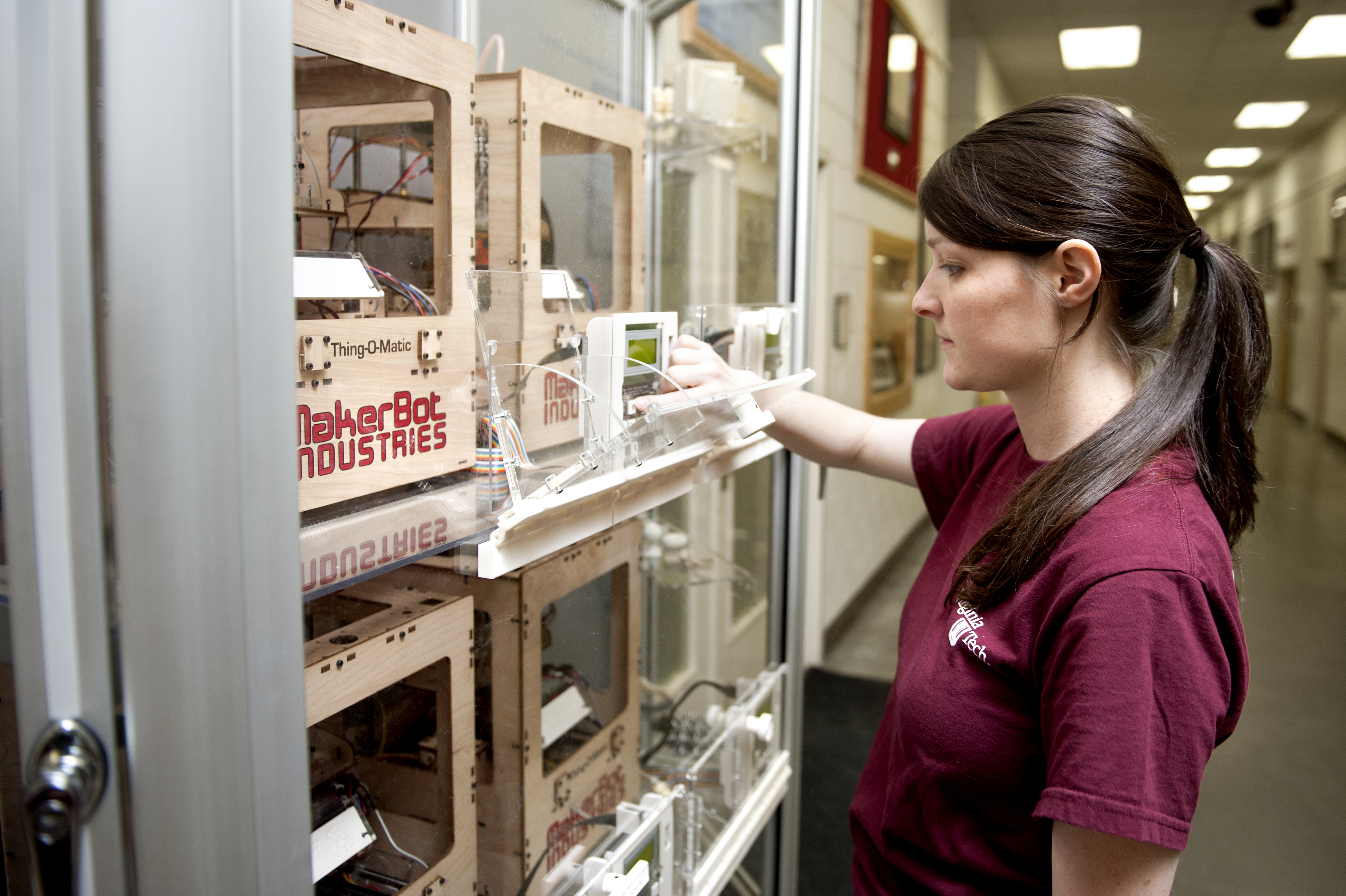Engineering doctoral student to compete on Discovery Channel's 'Big Brain Theory'

A Virginia Tech College of Engineering doctoral student is one of 10 contestant on new Discovery Channel reality television competition show “Big Brain Theory: Pure Genius,” which focuses on using logic and design to crack different engineering-related challenges each week.
Amy Elliott of Fayetteville, Tenn., and a doctoral student in the Department of Mechanical Engineering, is one of 10 contestants on the eight-week show which debuts May 1 and will be hosted by actor Kal Penn, best known for a starring role on the drama “House” and serving in the White House under President Barack Obama.
Each episode contestants will be tasked with forming the best engineering concept to solve a technical issue, and then split into two teams to carry out the plan. The losing team will have one of its members eliminated by a panel of judges. The ultimate winner of the show earns $50,000 and a one-year contract to work at WET Design, a Los Angeles-based high-end water fountain and feature firm.
“This show is definitely not like what you would see on regular television,” said Elliott, who is contractually bound to limit discussion of her participation on the show. “The challenges are really tough, it was just unbelievable what they thought we could accomplish. So in that respect, it will be interesting for the audience to get involved and try to follow along with our problem solving processes.”
Of her cast mates, many of whom also are graduate students or young professional engineers, Elliott added, “With the cast they chose, engineering and the sciences will seem a lot more approachable to most people since we’re just relatively normal people that like to have a good time.”
A “Big Brain” promotional release states the show is “looking for the next great technological mind that could change the future” and supports learning through science, technology, engineering and math, or STEM for short. Challenges that Elliott and her cast mates face vary: In the debut episode, contestants must halt a pair of unmanned pickup before they collide in a head-on collision, and in future episodes must create a machine that can prepare a large meal; build a portable ruggedized bunker that can be deployed in moments; and construct a sports-savvy robot.
Elliott is now in her fourth year of study for a doctorate and a member of the Virginia Tech DREAMS – short for Design, Research, and Education for Additive Manufacturing Systems -- Laboratory. She heard of the show’s casting though an email forwarded by mechanical engineering department.
“I really hoped I would get picked because I felt that I fit the casting call pretty well. Turns out I did,” said Elliott. “I had a lot of machine shop and design experience as well as personality, which is what they were looking for.”
As with many TV competition shows, “Big Brain” follows contestants outside of the competition arena and into a shared dormitory-like facility where they lived during filming. The move allows producers to show the contestants “dealing with each other’s quirks and habits,” according to the “Big Brain” website.
Elliott said she quickly became accustomed to the constant presence of cameras.
“Being on a TV show like that for such a long time is definitely an interesting experience,” she said. “A lot of the time you do forget the camera is there. … Also we were trained to not say anything important while there were loud noises in the background, for audio’s sake. So, even now, when a plane or loud truck passes by I think of that.”
Elliott said she plans to watch the show, mostly at the homes of friends as she does not have cable. She also says she plans to live Tweet about the shows as they air at @amytheengineer.
"From her doctoral research on 3-D Printing nanocomposites, to her work in leading the design of the DreamVendor, we have always known that Amy has a great combination of analytical and hands-on skills. We are excited that she gets to share these skills -- and her passion for engineering -- on this big stage," said Christopher Williams, an assistant professor with Virginia Tech’s Departments of Mechanical Engineering and Engineering Education.




